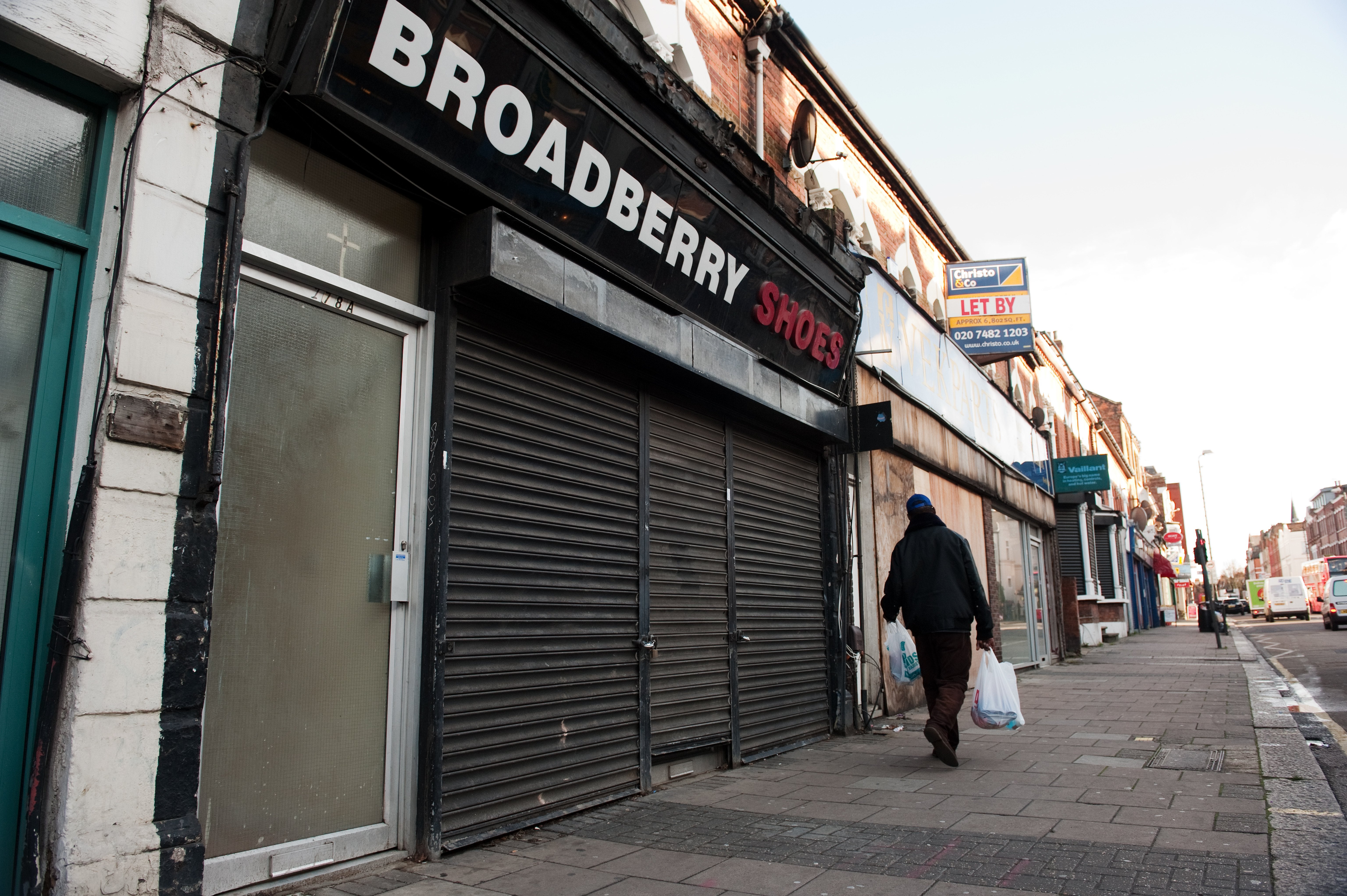Retail and hospitality businesses missed out on £45bn in sales during first UK lockdown, study estimates
Study finds ‘massive shift’ in the nation’s shopping habits that researchers think could be here to stay

Retail and hospitality businesses missed out on £45bn during the first lockdown and its immediate aftermath, a study has found.
Bars, pubs and restaurants lost 90 per cent of revenues over the period, amounting to £25bn, while non-food high street shops saw £20bn of sales evaporate, according to researchers at the Universities of Cambridge and Newcastle.
The study compared March and August 2020 with the same months for the previous decade and found a “massive shift” in people's shopping habits that could have long-lasting impacts on the UK economy.
Online sales received £4bn boost, peaking at a third higher than would have been expected if the pandemic had not happened.
They also remained above pre-lockdown levels in August 2020, which the researchers suggest may be early signs of a permanent “structural change” in shopping habits.
Shops predominantly selling food, such as supermarkets, saw a 5-10 per cent bump in sales in lockdown. This is “consistent with large-scale stockpiling”, as people prepared for an indefinite future of home-cooked meals, the study said.
Hospitality partially recovered post-lockdown but remained 25 per cent below estimated business-as-usual revenues by the end of summer.
The researchers found no evidence of a post-lockdown fall in food sales as people used up their stockpiles, or an “overshoot” in spending on the high street due to pent-up demand during lockdown.
“Lockdown restrictions led to behaviour changes in consumers and retailers that caused huge fluctuations in sales,” said Shaun Larcom from the University of Cambridge, who co-authored the study with his Cambridge colleague Po-Wen She and Luca Panzone from the Newcastle University.
“Shopping frequency dramatically reduced, and footfall vanished from many commercial areas, with people going online or using local outlets within residential areas when they had to shop.”
“Consequences of lockdown, such as long queues outside supermarkets, led to ‘forced experimentation’. Consumers had to explore new purchasing methods,” said Mr Larcom, from Cambridge’s Department of Land Economy.
“Many people shopped online for the first time. They also bought directly from wholesalers or even farms, and trialled different types of home cooking. When people are forced to experiment, it can lead to behaviour changes that last well beyond the life of a crisis.”
Recent media reports suggest that the UK Treasury is considering a one-off tax for online retailers who saw profits boosted by the lockdowns.
“Understanding the monetary impact of the pandemic is important to gauge the magnitude of the damage, and can help government design policies to assist these sectors,” said Mr Panzone from the University of Newcastle.
“Food services and non-food retailers lost a huge share of their yearly business, compared to food stores and online retailers that actually gained from lockdown. One-size-fits-all policy approaches across retail won’t work,” he said.
Industry figures renewed calls for more support on Thursday ahead of a government announcement on the road-map out of the crisis and the latest Budget.
Kate Nicholls, chief executive of trade body UKHospitality, said the vaccine rollout had offered hope for the sector and wider society. The lobby group estimates that hospitality alone lost £72bn in sales last year.
She added: “However, a delayed reopening will come at the cost of even more jobs and more business collapses – this is an industry that is clearly already on its knees and that has already lost one million jobs, including those lost amongst our ailing supply partners. Prolonged closure risks the longer-term economic recovery and also makes no sense on the grounds of safety.
“There is no valid reason for hospitality to be at the back of the queue as data shows hospitality venues are very low risk due to the exceptional investment that businesses have made in creating safe and Covid-secure environments.
Bosses from leading UK airlines also urged the prime minister to outline a recovery plan so they can plan for a crucial summer holiday season.
The chief executives of British Airways, easyJet, Jet2.com, Loganair, Ryanair, Tui and Virgin Atlantic warned that without a clear indication of intent from the government that aviation will restart in the coming months, the UK faces a year of limited connectivity to the rest of the world, and the economic recovery will be hampered.
Tim Alderslade, chief executive of Airlines UK, said: “The prime minister needs to indicate the intent for international travel to reopen again this summer and provide much-needed reassurance that travel will be possible, helping to restore consumer confidence.
“We do not expect travel restrictions to be lifted tomorrow, but it is important that the country has a clear view on the plan for international travel as we emerge from lockdown.”
Subscribe to Independent Premium to bookmark this article
Want to bookmark your favourite articles and stories to read or reference later? Start your Independent Premium subscription today.

Join our commenting forum
Join thought-provoking conversations, follow other Independent readers and see their replies